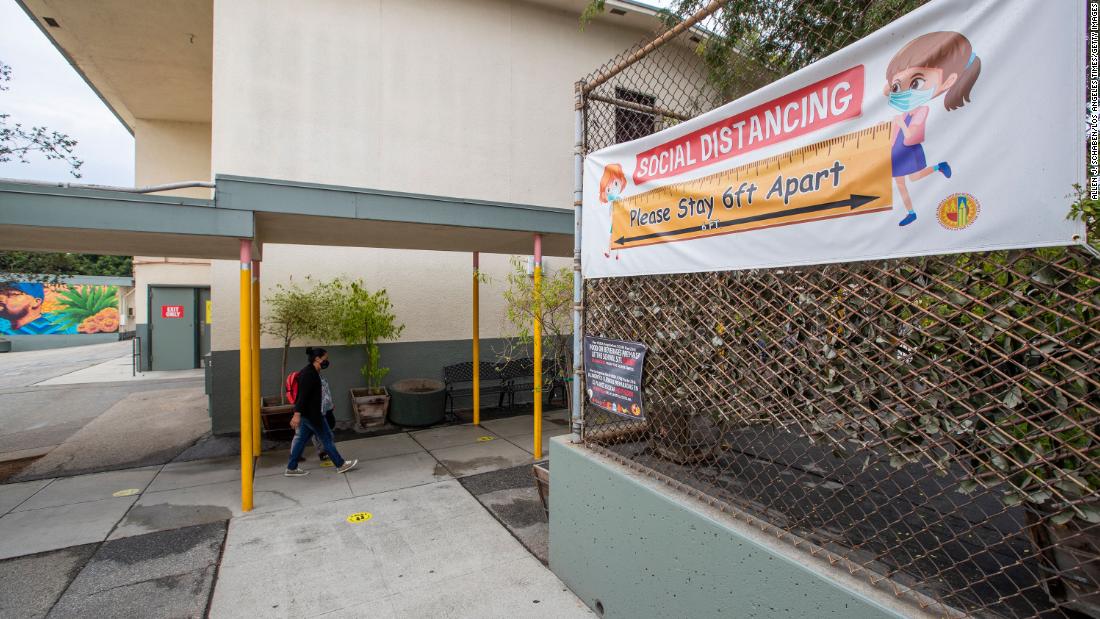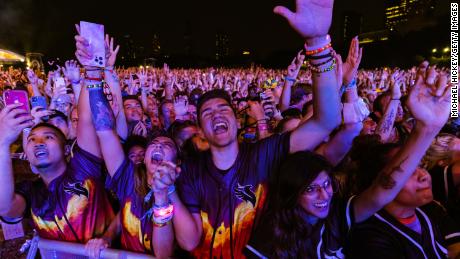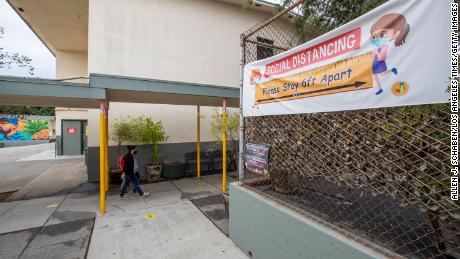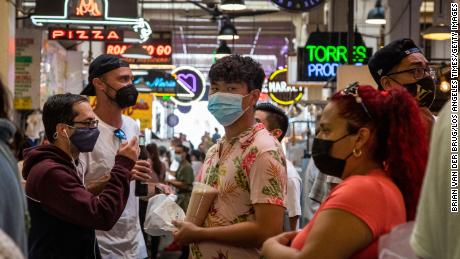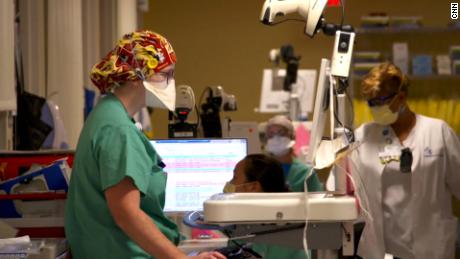Former surgeon general anticipates more closures as the Delta variant keeps spreading
The data already shows the difference between areas with high and low vaccination rates.
Average hospitalization rates are nearly three times higher in states that have fully vaccinated less than half of their residents compared with those that have vaccinated more than half of their residents, according to a CNN analysis of federal data. And Covid-19 case and death rates over the past week are more than twice as high among states that have vaccinated less than half of their residents, on average.
With only 49.4% of Americans fully vaccinated, former US Surgeon General Dr. Jerome Adams said Thursday that he anticipates more closures as the Delta variant keeps spreading. And with some mask and vaccine mandates already implemented, Murthy anticipates more will be added.
“The private sector is already stepping up to create verification systems,” Murthy said. “What we are going to see more and more, Anderson, in the weeks and months ahead is, I believe, we’re going to see more universities, more hospitals, more businesses, more retail establishments looking to put rules in place to require people to get vaccinated.”
Those kind of mandates can make a difference in motivating Americans to get vaccinated, Dr. Ashish Jha, dean of the Brown University School of Public Health, said Thursday. Jha said other measures will help the US manage transmission in the short term, but vaccine mandates will be part of the long-term solution.
“I wish we’d done these mandates a month earlier,” Jha added. “They would have made a bigger difference, but even doing it now will help.”
The enemy is the Delta variant, governor says
The document — a slideshow first obtained by The Washington Post — appears to provide some data backing CDC Director Dr. Rochelle Walensky’s controversial decision to change the agency’s guidance on mask use.
It says the Delta variant is about as transmissible as chickenpox, with each infected person, on average, infecting eight or nine others. The original lineage was about as transmissible as the common cold, with each infected person passing the virus to about two other people on average.
Some states are seeing the consequences of the virus’ spread unfold.
Arkansas Gov. Asa Hutchinson announced he was reinstating the public health emergency because of the rise in Covid cases.
“Anytime you are having staffing shortages in hospital(s). Whenever, today I believe, it’s four Covid patients that are waiting in ambulances to be able to find a hospital to go to. That constitutes an emergency and a public health crisis” Hutchinson said.
In Central Florida, Advent Health said it had about 1,000 Covid-19 patients as of Thursday, surpassing the January peak of around 900, according to a press release.
In West Virginia, Gov. Jim Justice said the state’s Covid-19 task force will begin assessing the state’s PPE and hospital and nursing home preparedness.
Justice said the state will be working with Pfizer to conduct a “battlefield assessment” about the efficacy of the vaccine’s antibodies on fighting the Delta variant.
“The enemy is coming, and the enemy is this Delta variant,” Justice said.
Experts weigh on on prospects for booster shots
Amid the surge, the conversation has turned to whether boosters will be needed to enhance the vaccine protection — but many experts say the time for that is still far off.
“Booster shots will come, better guidance on who needs serology tests, when you check antibodies, which ones you check, those will all come,” Dr. Joseph Kanter, state health officer of the Louisiana Department of Health said during a call of the Association of State and Territorial Health Officials.
“I don’t think it changes anything of what we need to be doing right now, which primarily is increase the base of the generally vaccinated population.”
Dr. Nirav Shah, ASTHO president and director of the Maine Center for Disease Control and Prevention, agreed. “To be candid with you, right now, I’m really focused on getting folks first doses, rather than third doses,” Shah said.
Any decision on a booster dose depends on more data, a prominent member of the US Food and Drug Administration’s vaccine advisory committee Dr. Paul Offit told CNN on Thursday.
It is possible the US could know by the end of summer or early fall, Murthy said. “We have been tracking more than 20 cohorts across the nation, looking at for evidence of when immunity may wane and when breakthrough infections may increase,” he said.
If the time does come that boosters are needed, Americans will be able to get them in “a fast and efficient manner,” White House Covid-19 Response Coordinator Jeff Zients said Thursday.
CNN’s Lauren Mascarenhas, Hannah Sarisohn, Maggie Fox and John Bonifield, Shawn Nottingham, Deidre McPhillips, Rosa Flores, Kay Jones and Virginia Langmaid contributed to this report.
![]()


